Before you play…
Thank you for playing Relationship Goals! our innovative, online game, which allows young people to rehearse navigating relationships safely through our structured, digital adventure.
Please make sure that your students/child plays this game with supervision. We recommend that you play the game yourself first to check that it feels safe and suitable for your child.
The aim of this game is to help young people develop their knowledge and confidence to have healthy, equal relationships. It does not contain any explicit content and is unlikely to be triggering for players.
Just in case, we have signposted to safeguarding advice and support services throughout the website, in case you or your students/child need to access this at any point.
About The Game
Tender has teamed up with gaming experts to create Relationship Goals: a game to help young people understand and practice healthy relationships.
This game is suitable for all young people 9+, with a particular focus on supporting young people with mild-moderate special educational needs and disabilities (SEND).
Relationship Goals has been created in partnership with 15 young people with SEND and their caregivers, who have co-designed every aspect of the game: including its characters, gameplay and narrative.
Young people often tell us their expectations of relationships are influenced by the media they consume. Online games are a highly engaging learning tool for young people: providing a fun, engaging and safe space in which young people can build their confidence about relationships.
This resource aims to create a lasting, positive impact on how players approach real-life social interactions: empowering them to have healthy, equal relationships that enrich their lives.
For more information about the game’s creation, please contact Tender

How can my school/setting access the game?
Relationship Goals is currently available through booking a healthy relationships project with Tender.
Our projects are funded and available for free, subject to availability.
Projects include 10 hours of workshops with a group of students of your choice, and include staff training about promoting healthy relationships and preventing abuse amongst young people.
To book a Relationship Goals project for your school or setting, please contact Tender
How Does The Game Work?

Age Guidance
Levels
Relationship Goals has five levels and three mini-levels, each of which explores a different topic about relationships.
These topics increase in their complexity and maturity as the game progresses.
Every action a player takes in the game is linked to one of the learning outcomes for each level.
This means that adults supporting them can see what topics players are picking up particularly fast, or finding challenging.
You can access this at the end of each level and replay levels if students want to improve their knowledge and scores.

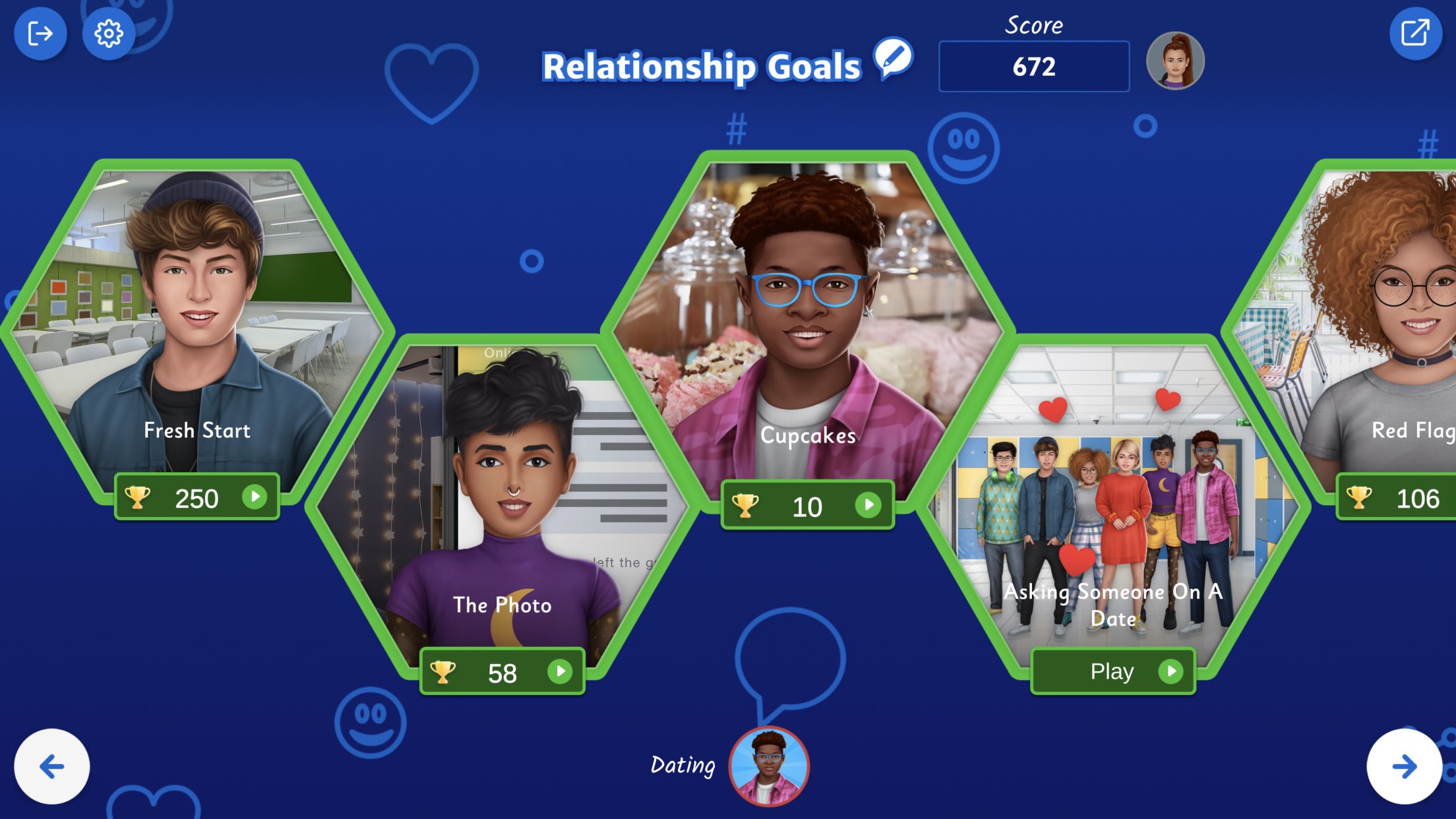
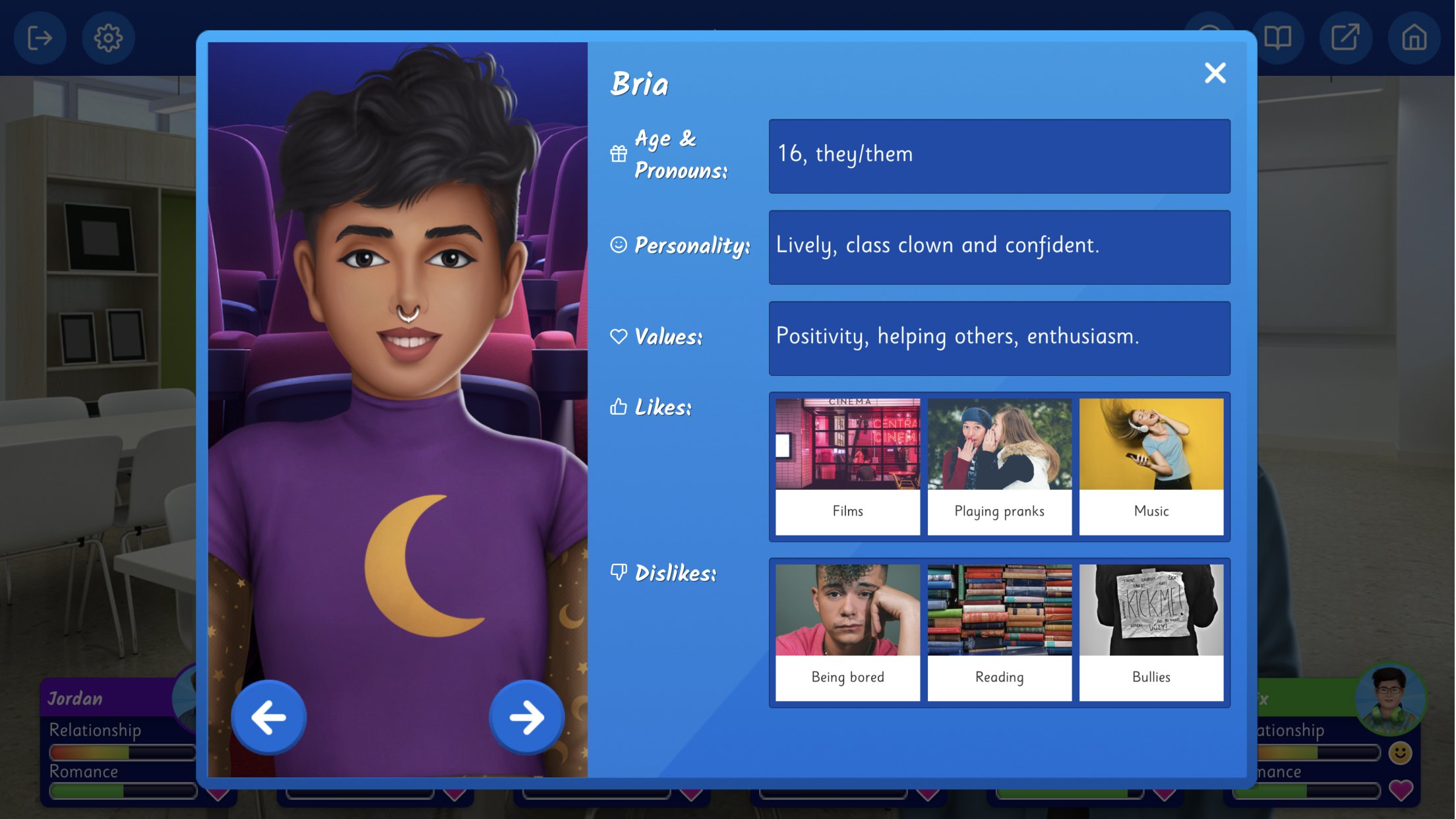
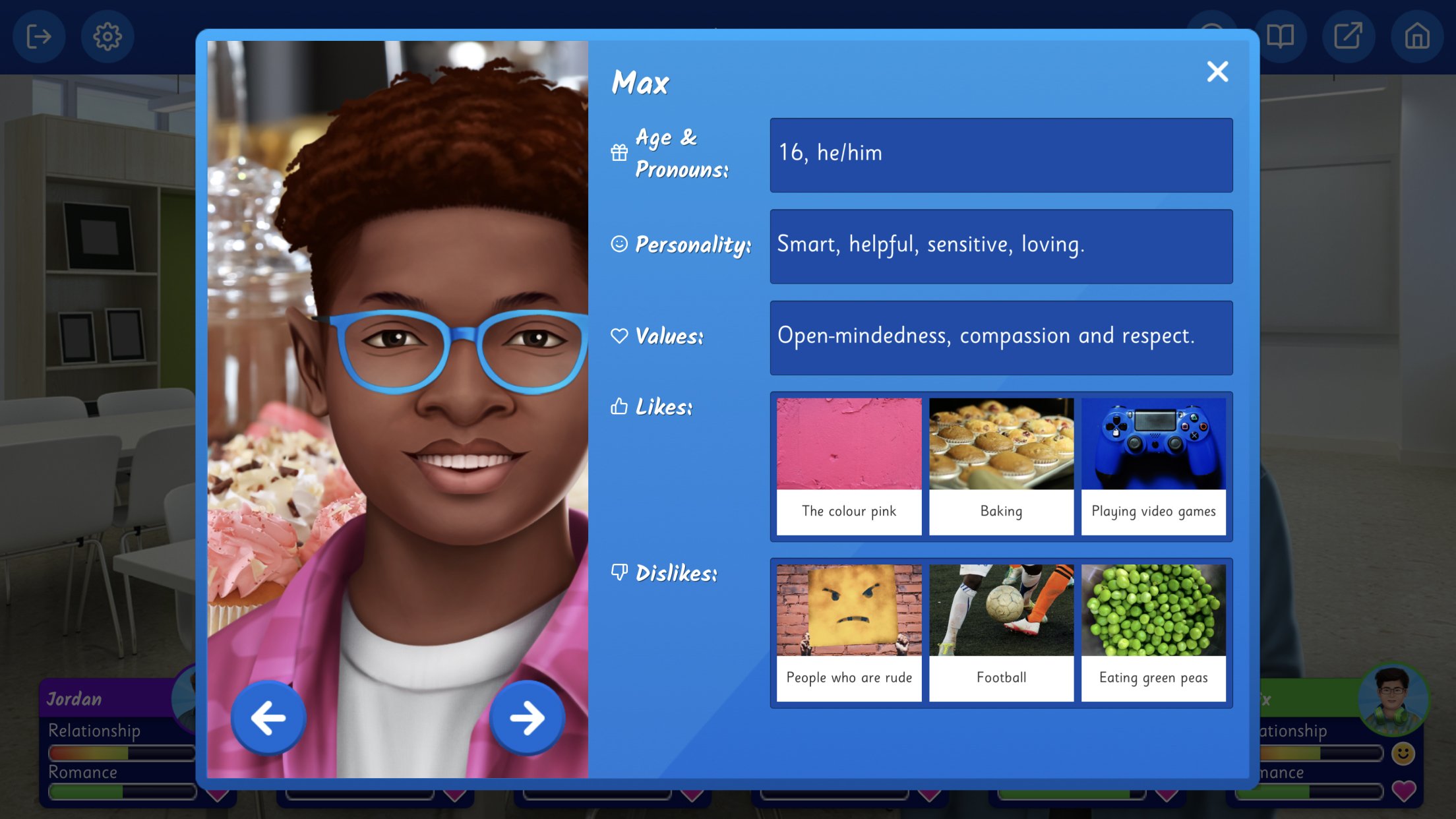
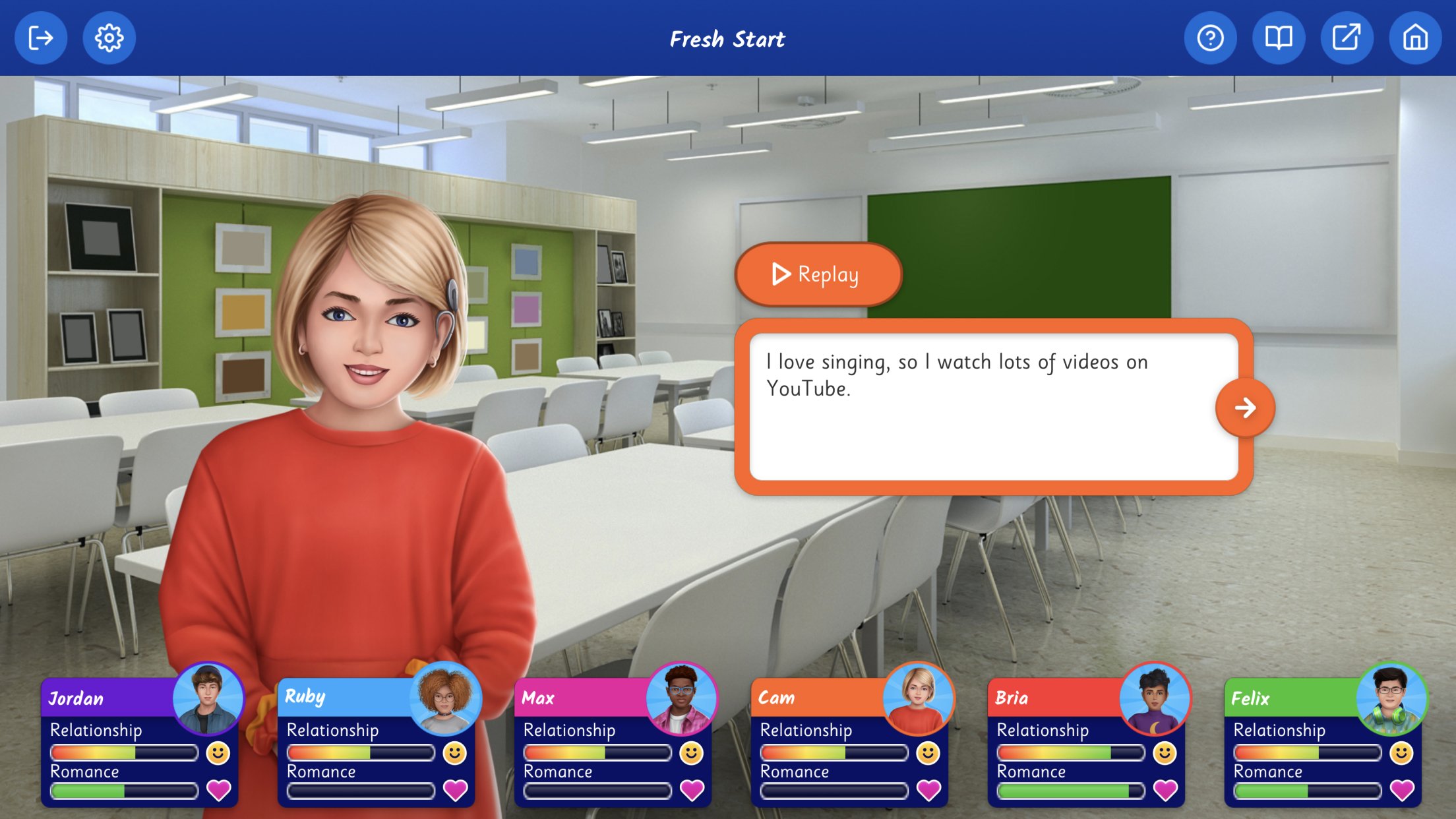
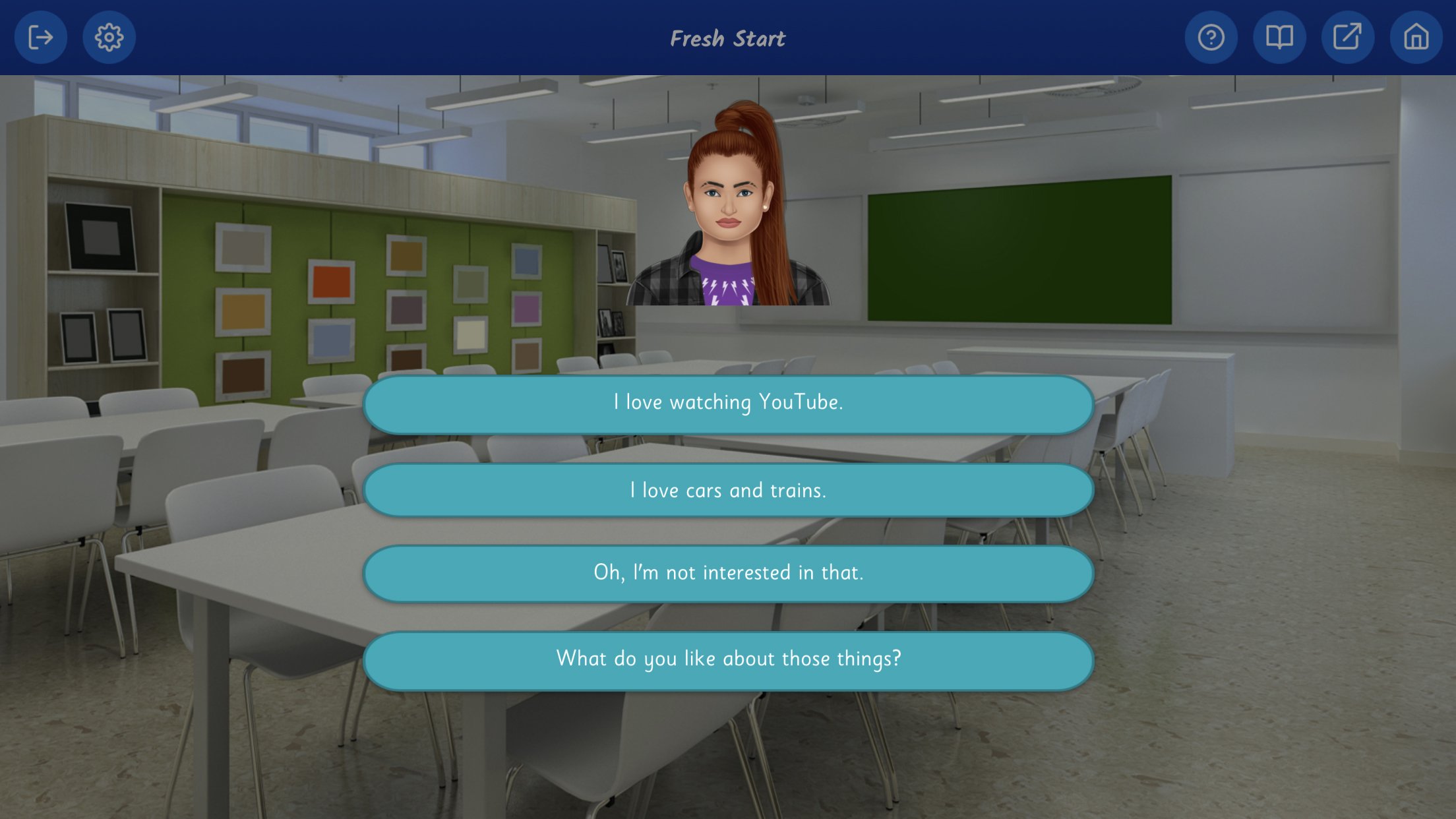
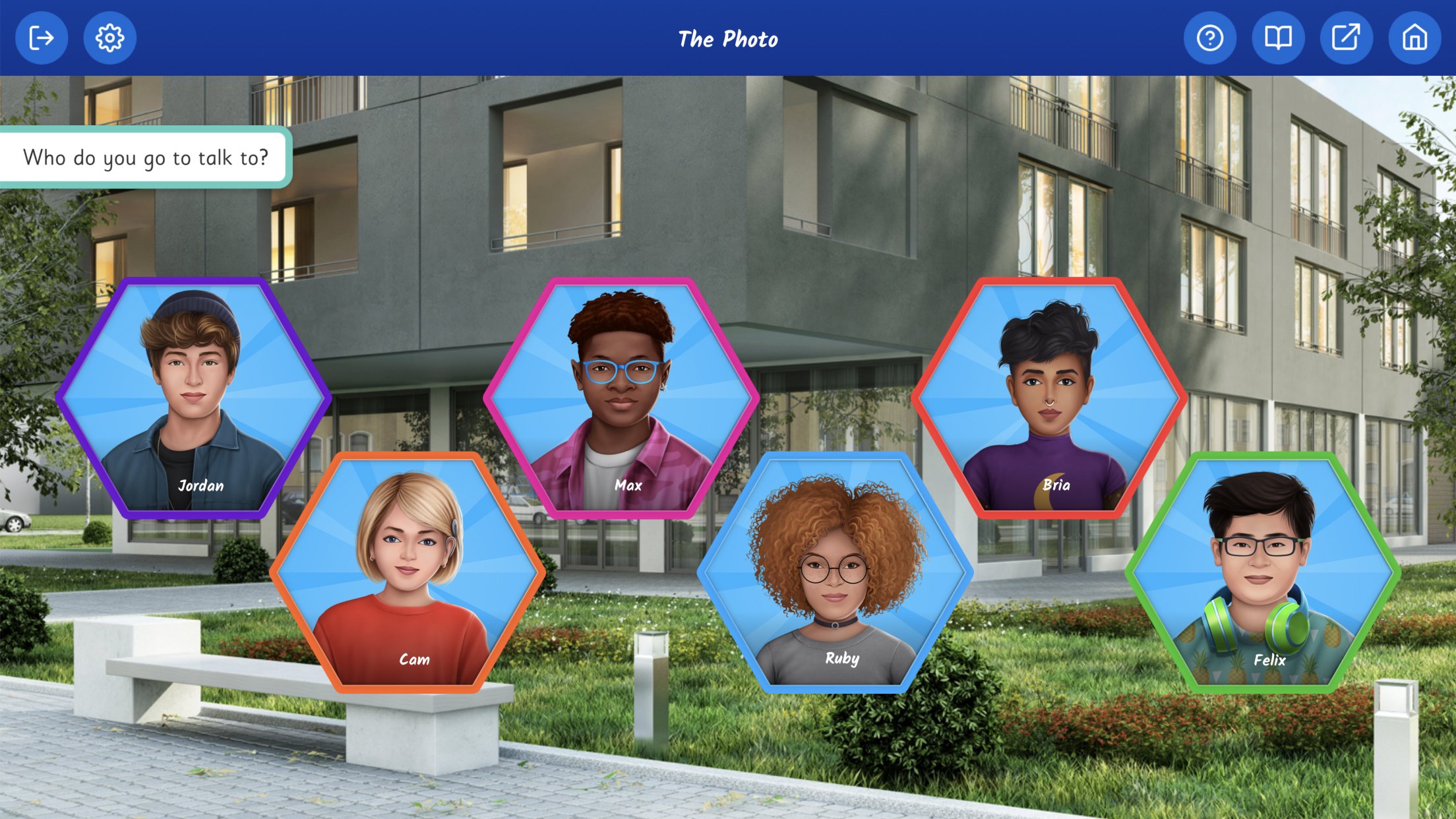
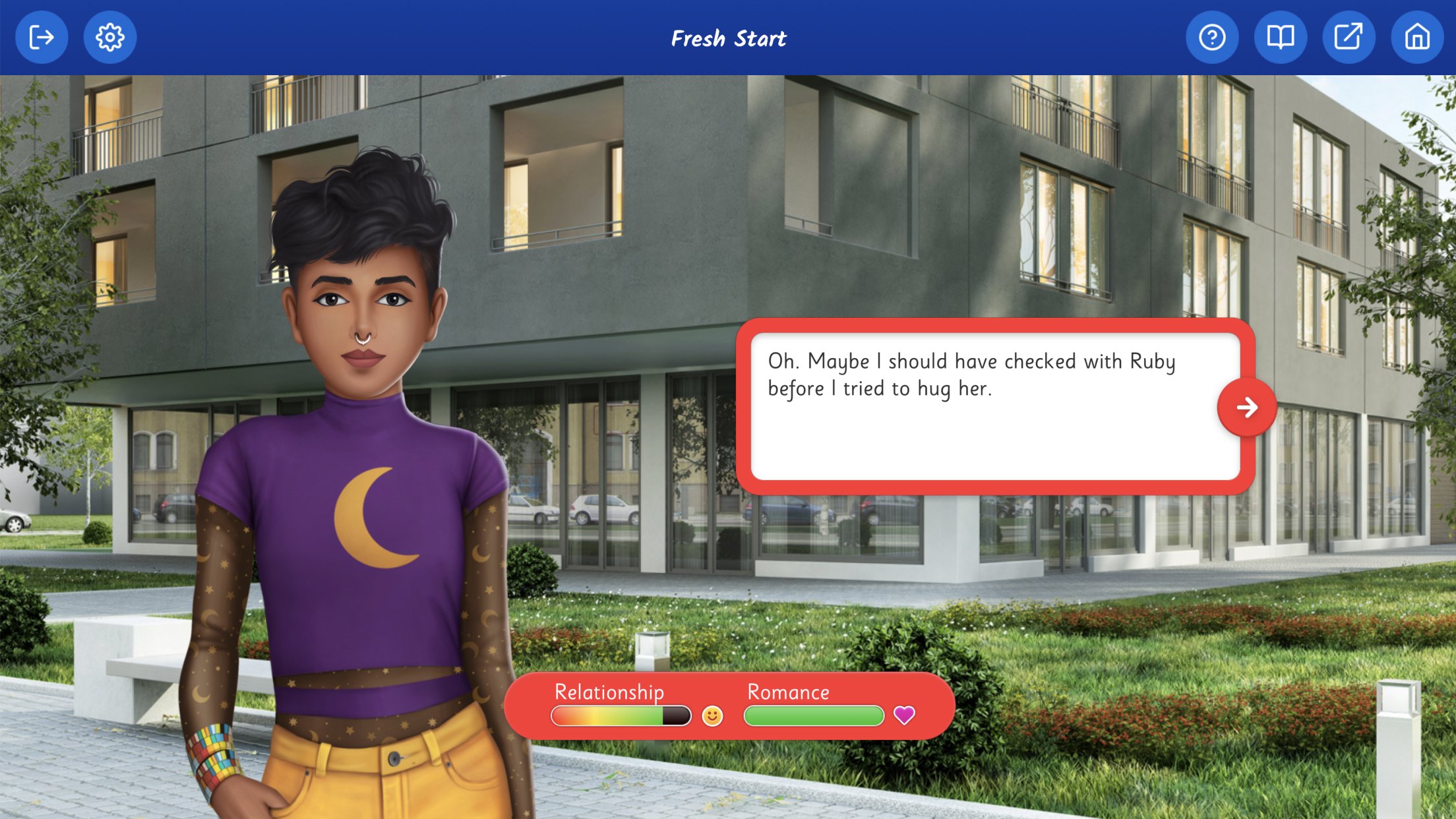
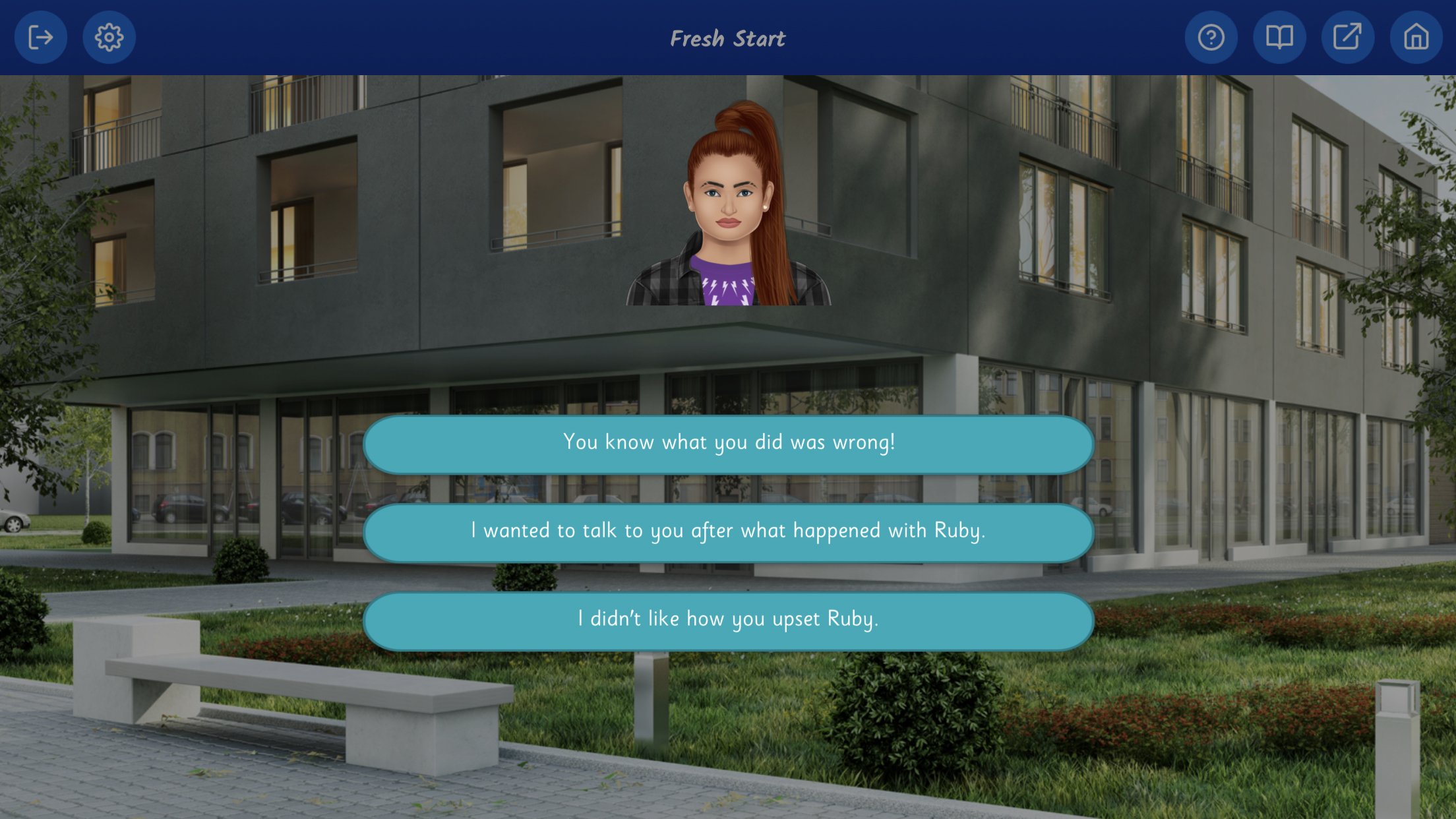
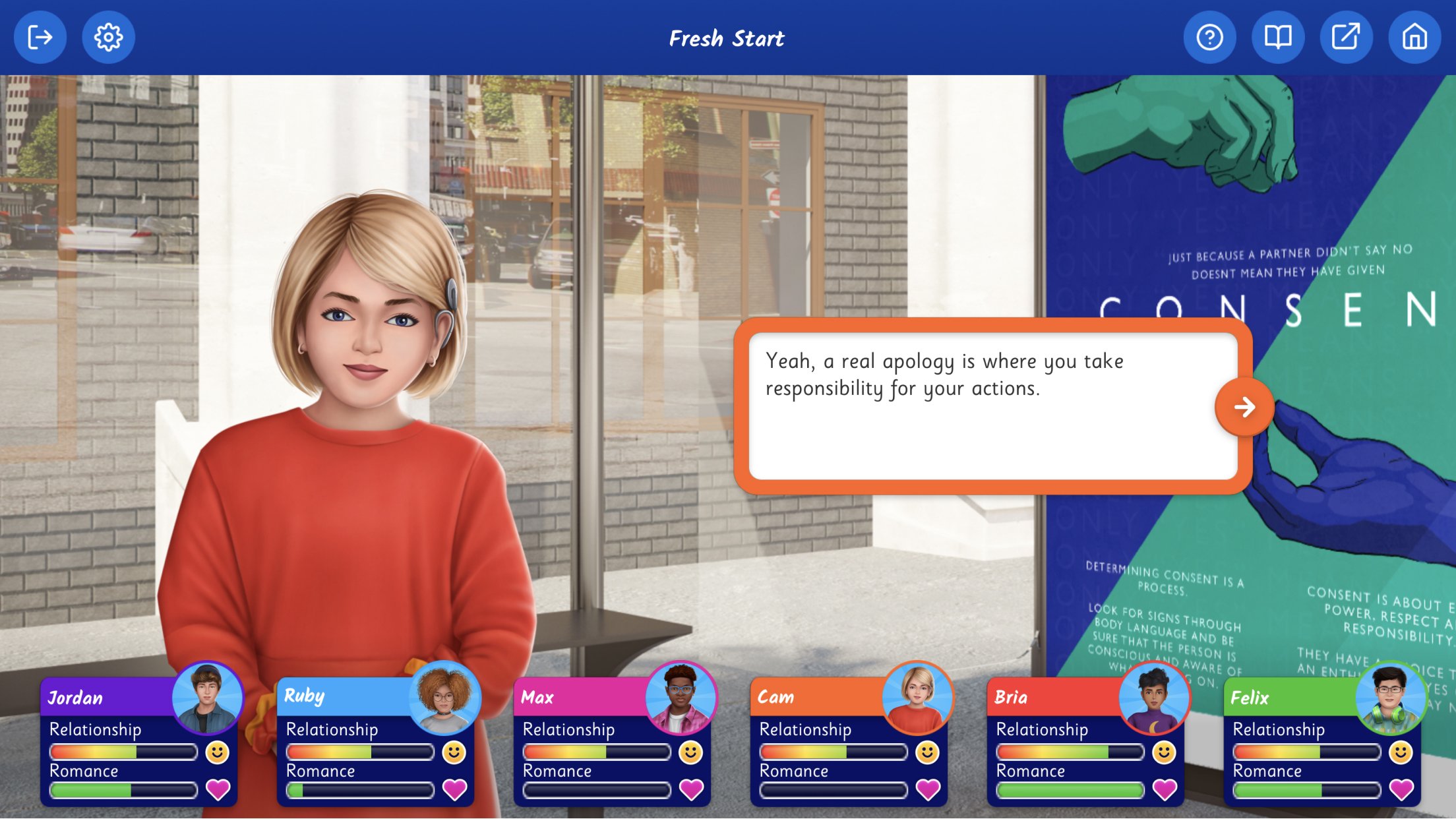
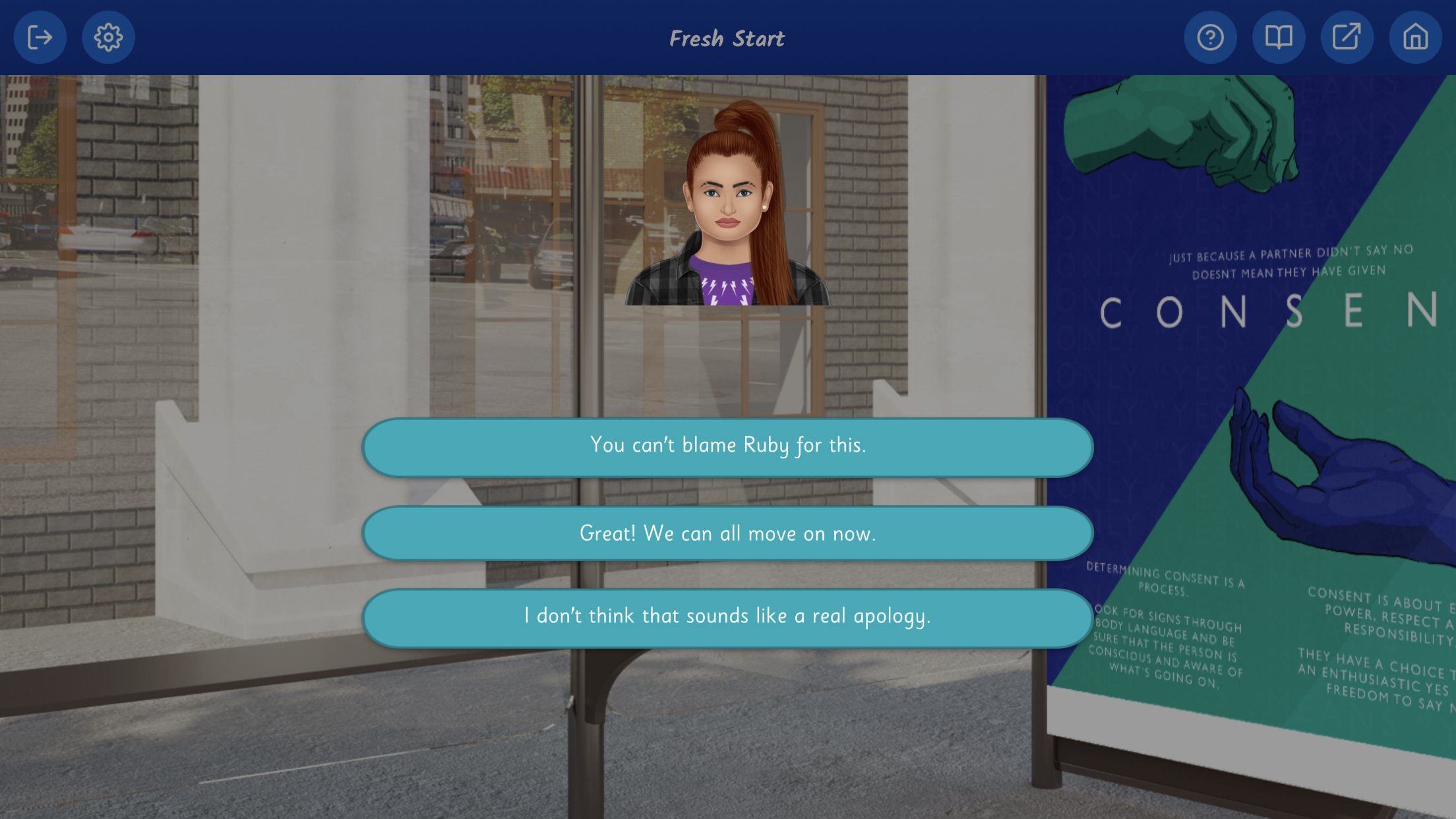
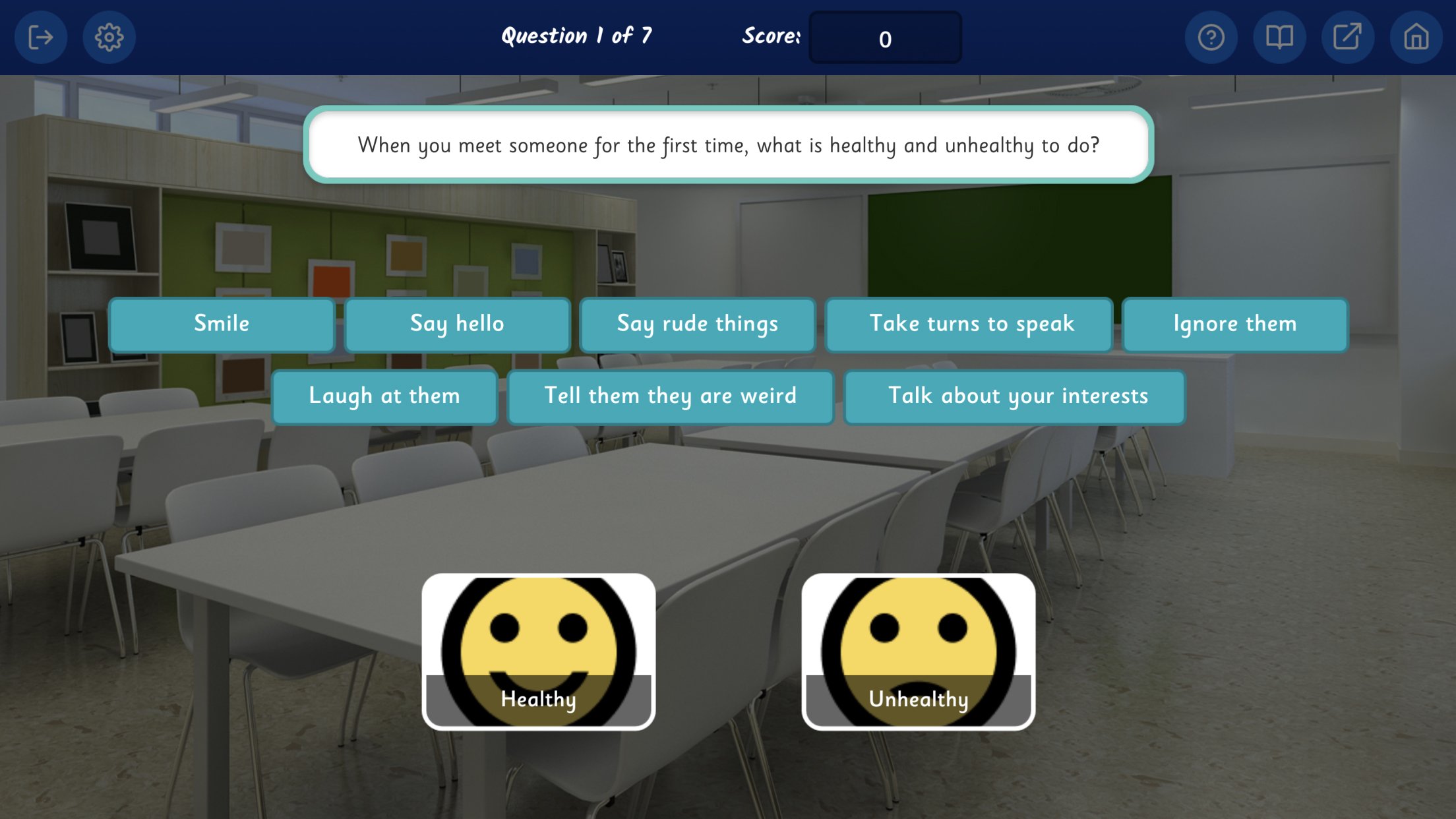
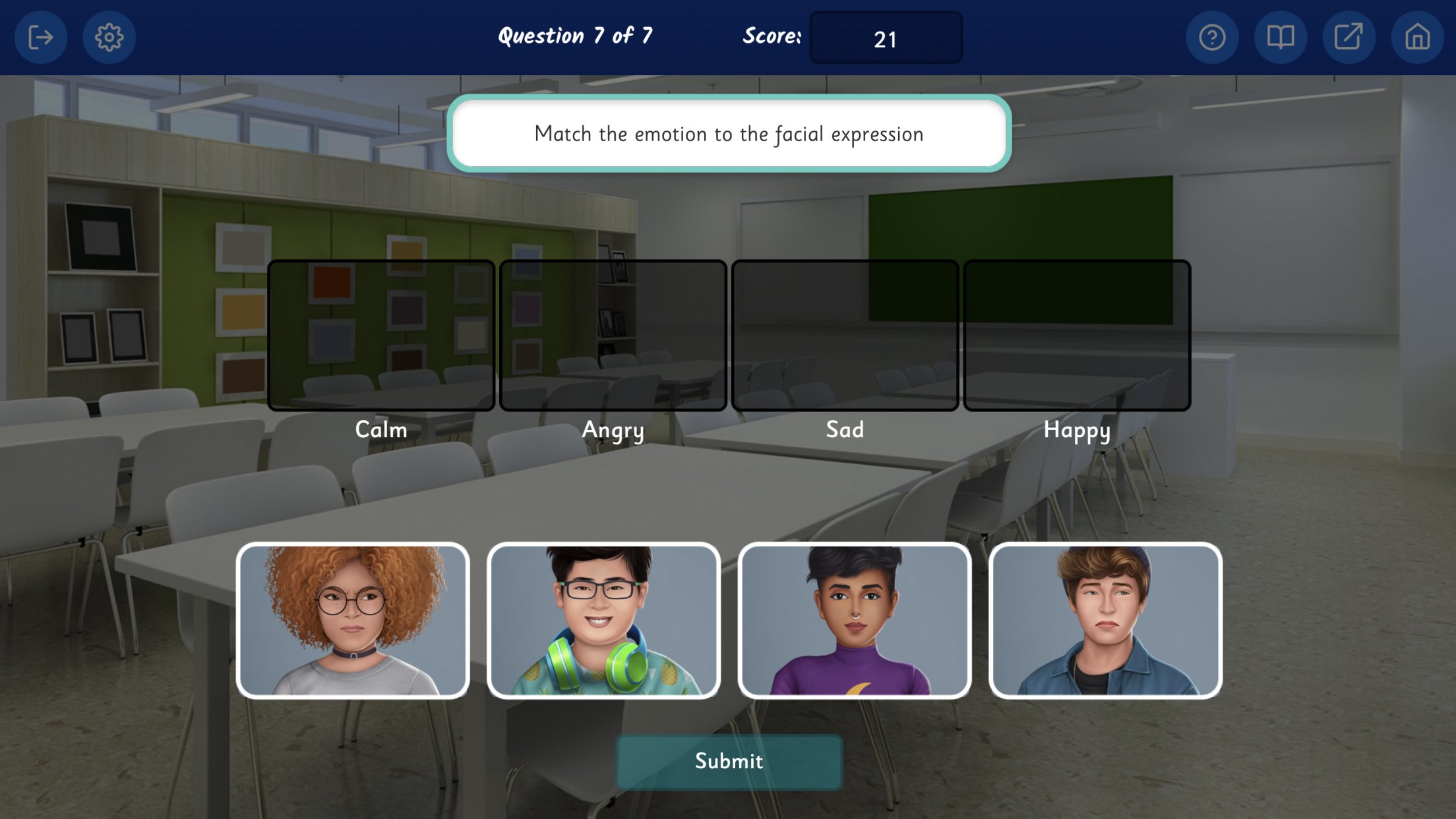
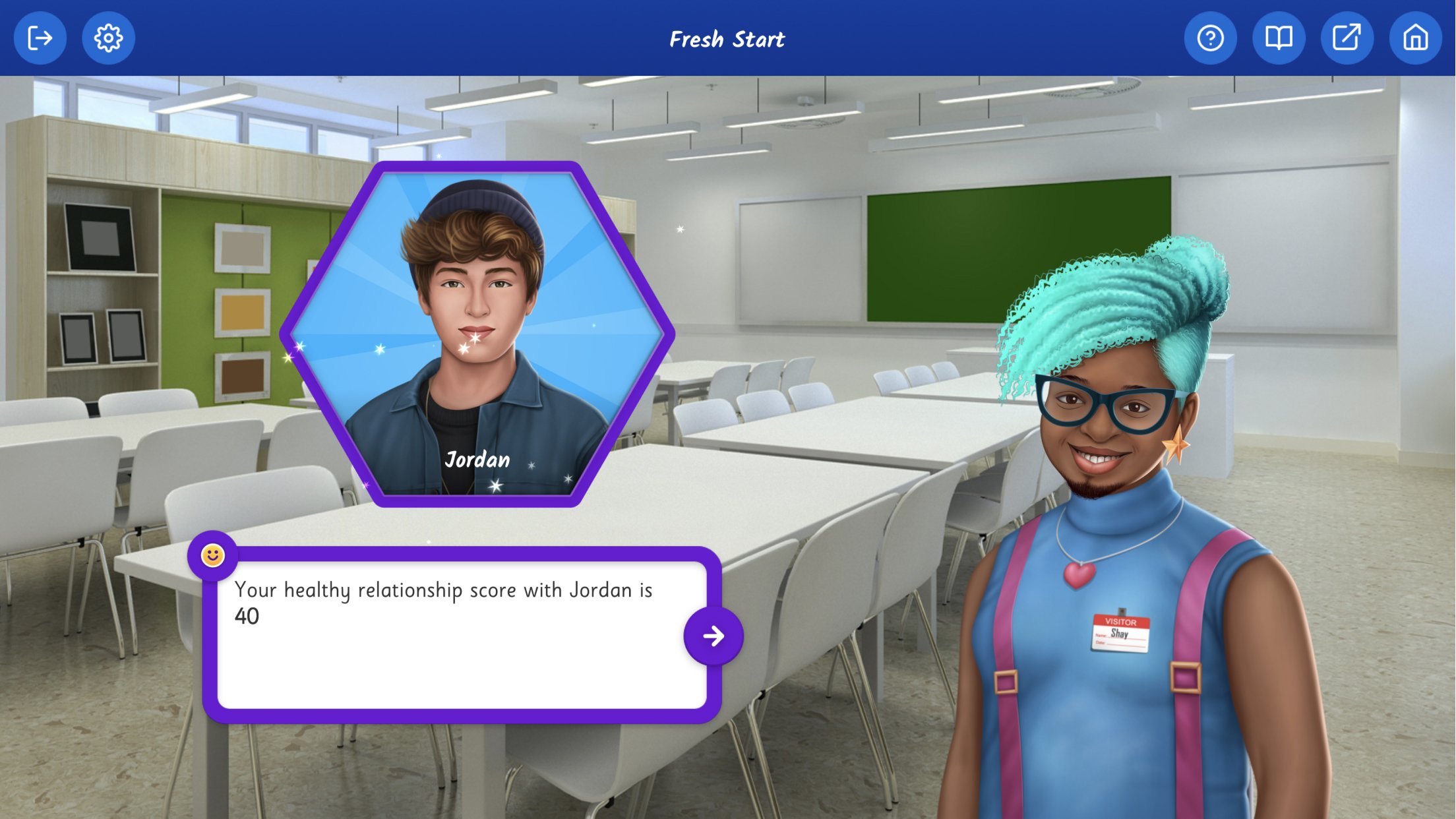
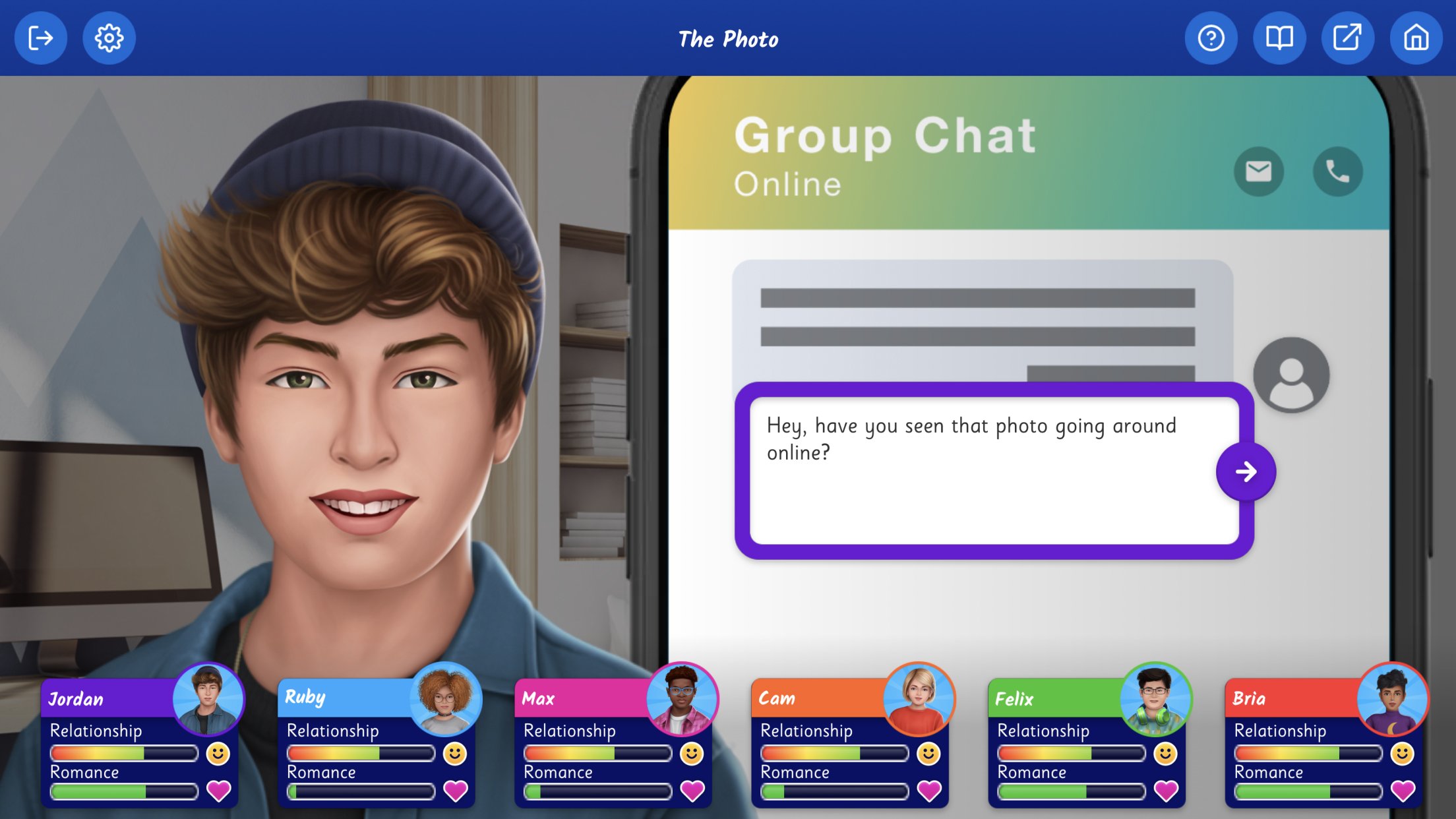
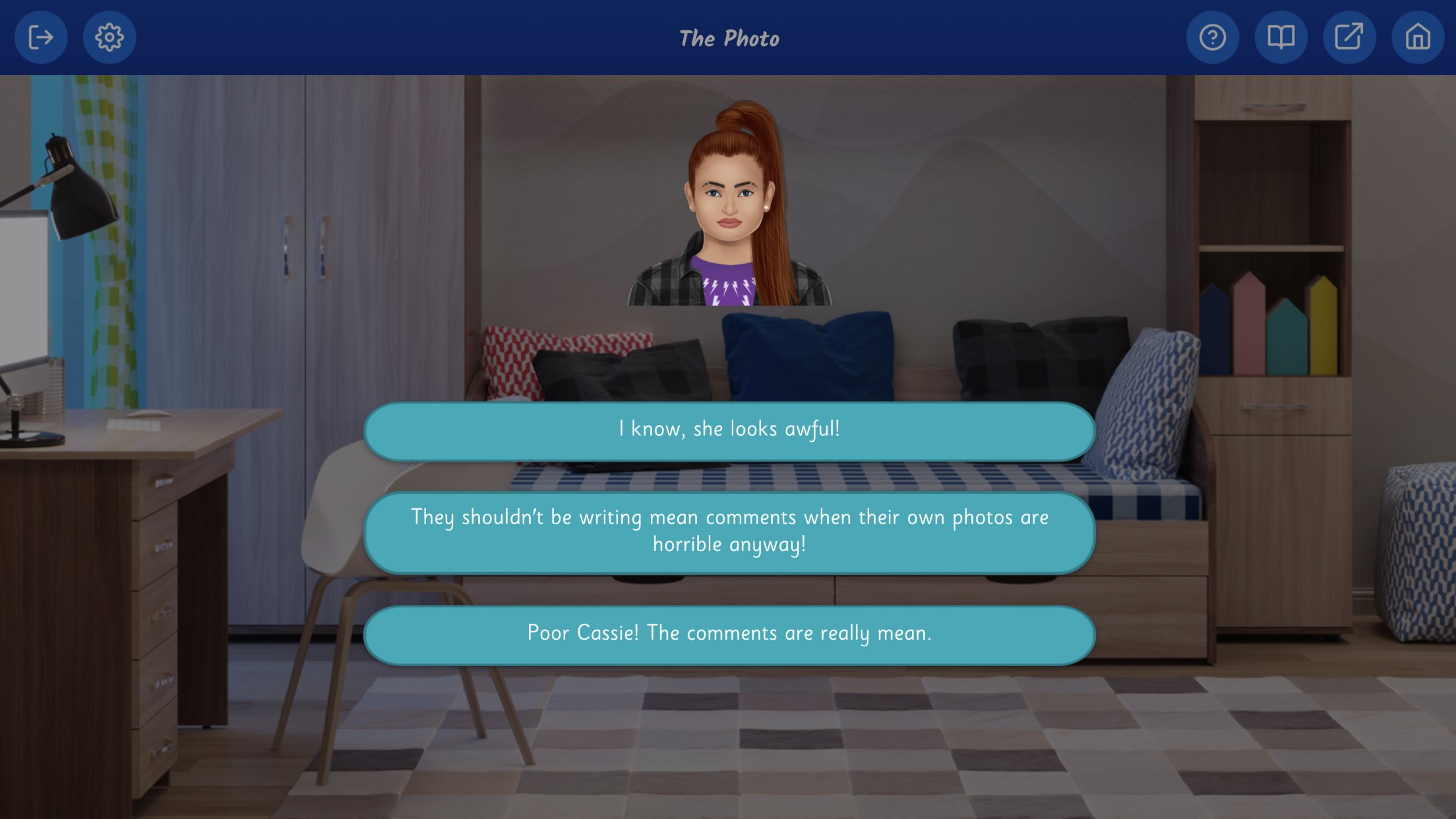
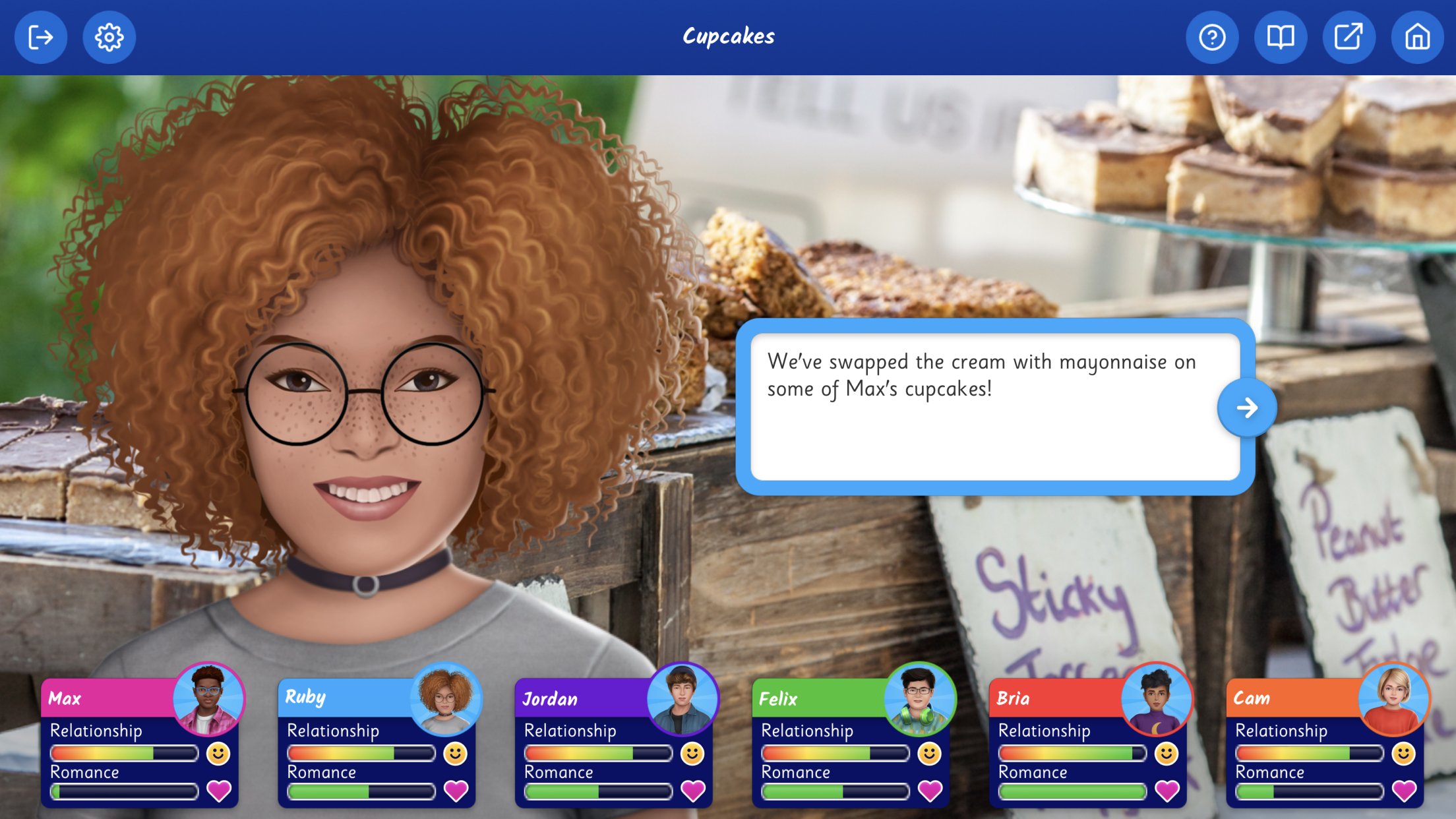
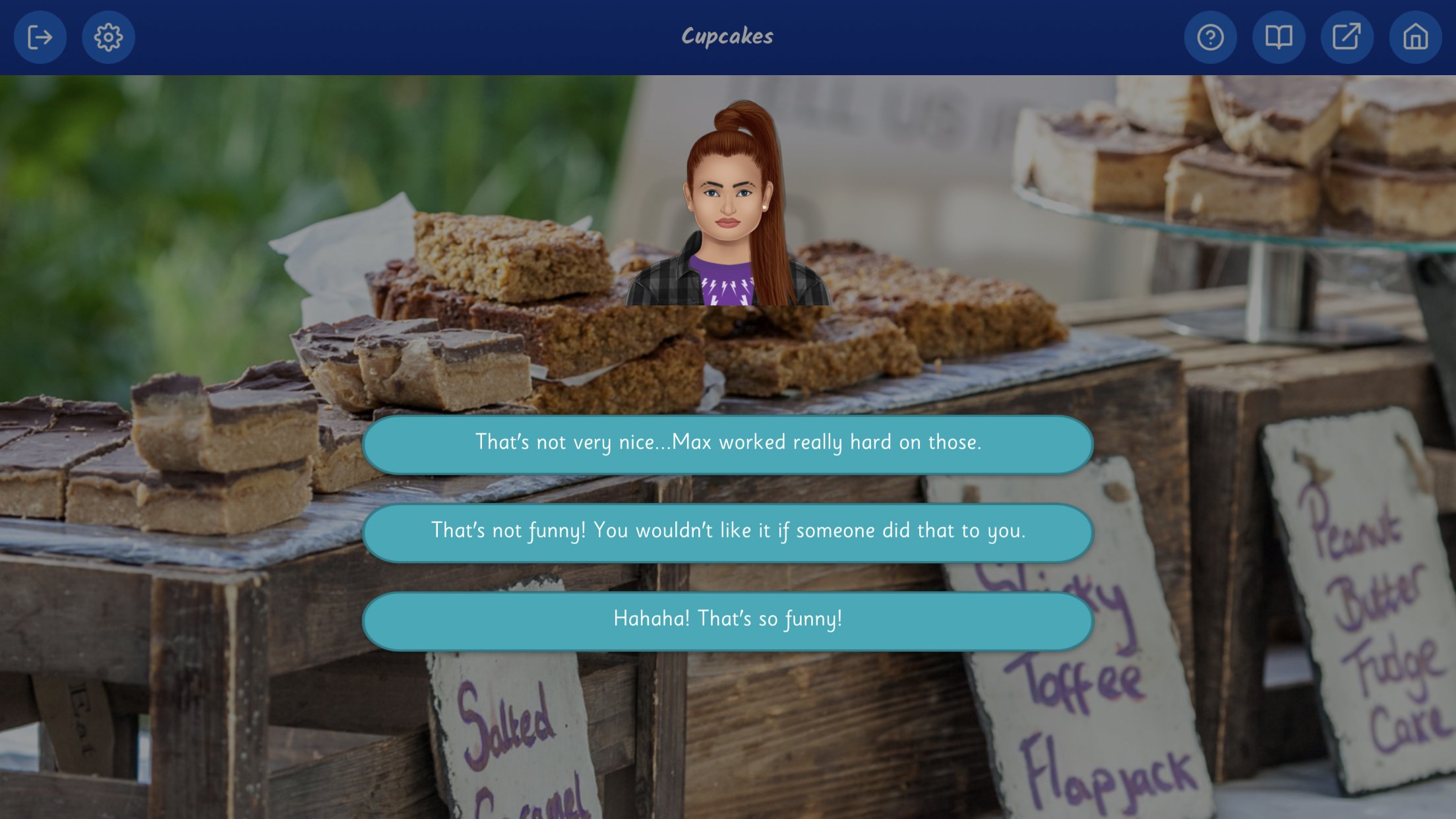
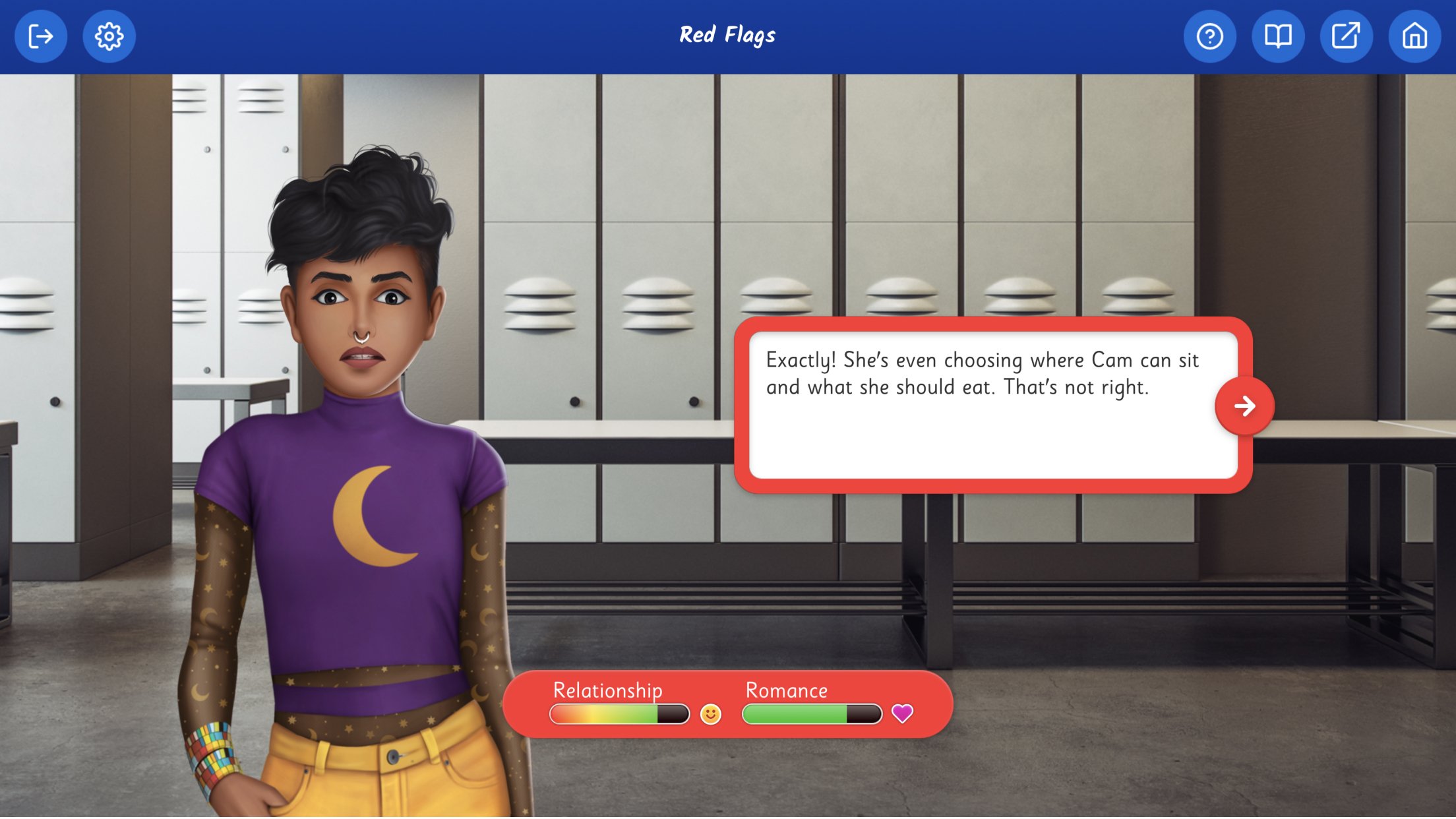
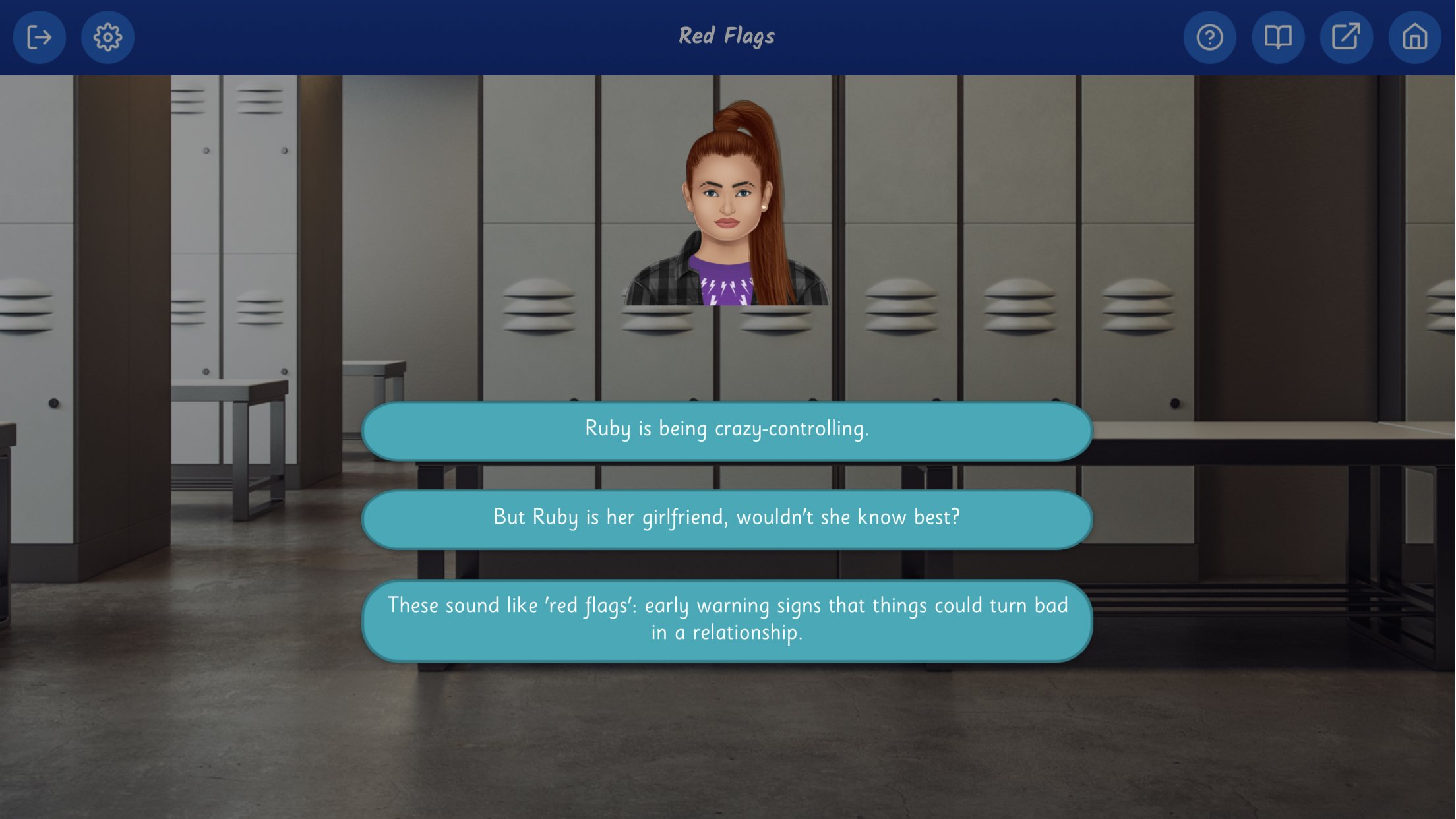
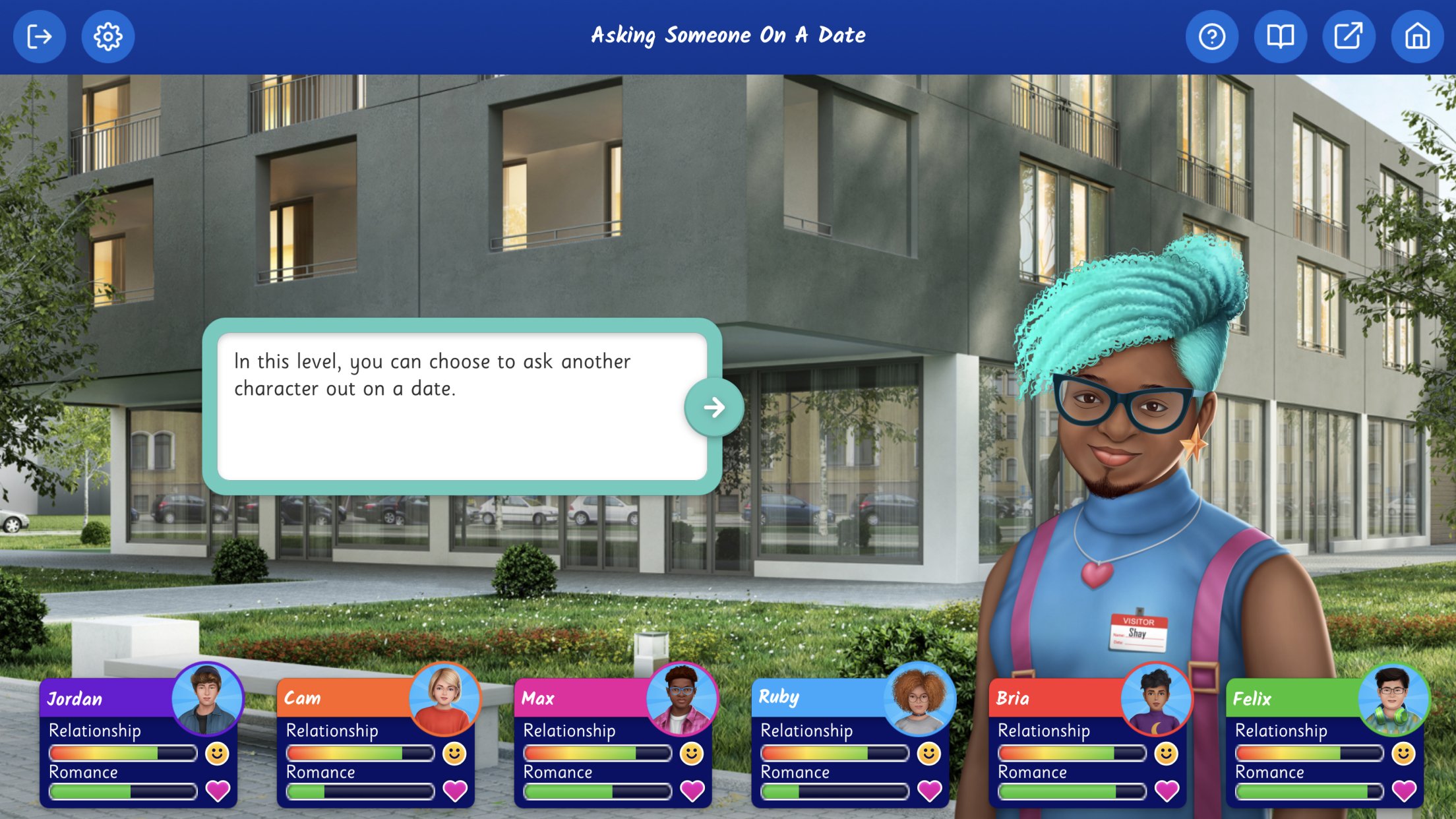
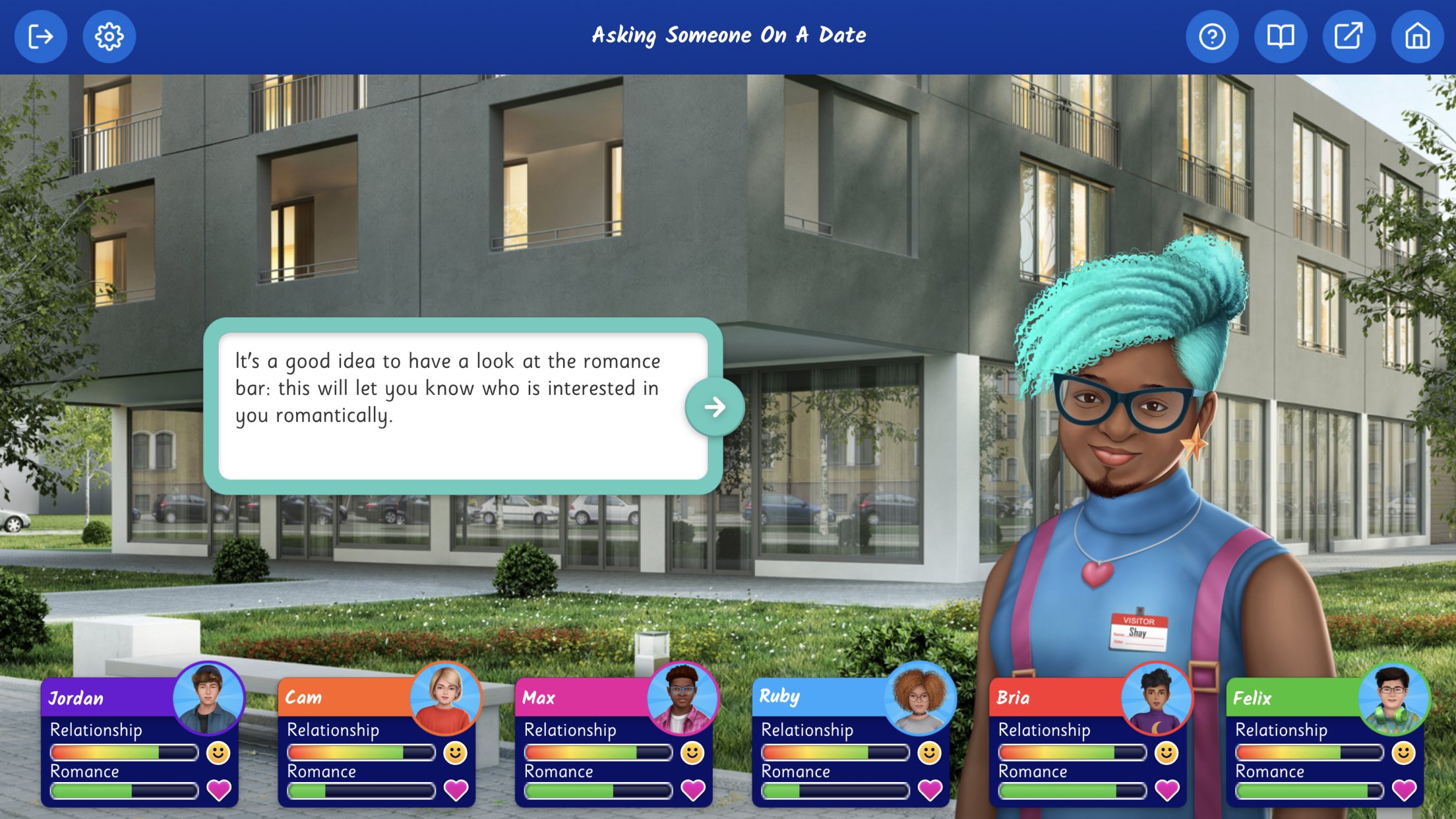
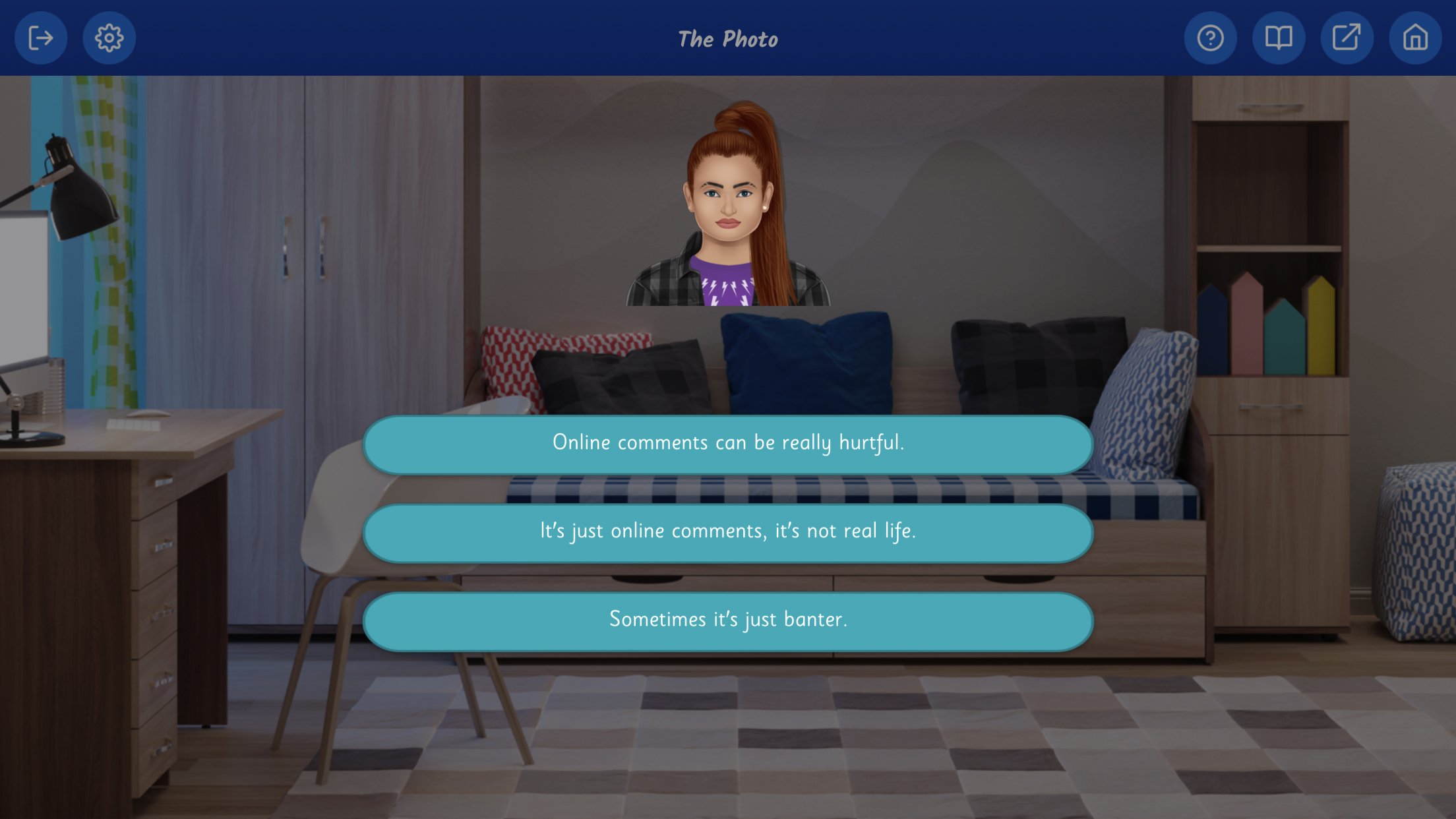
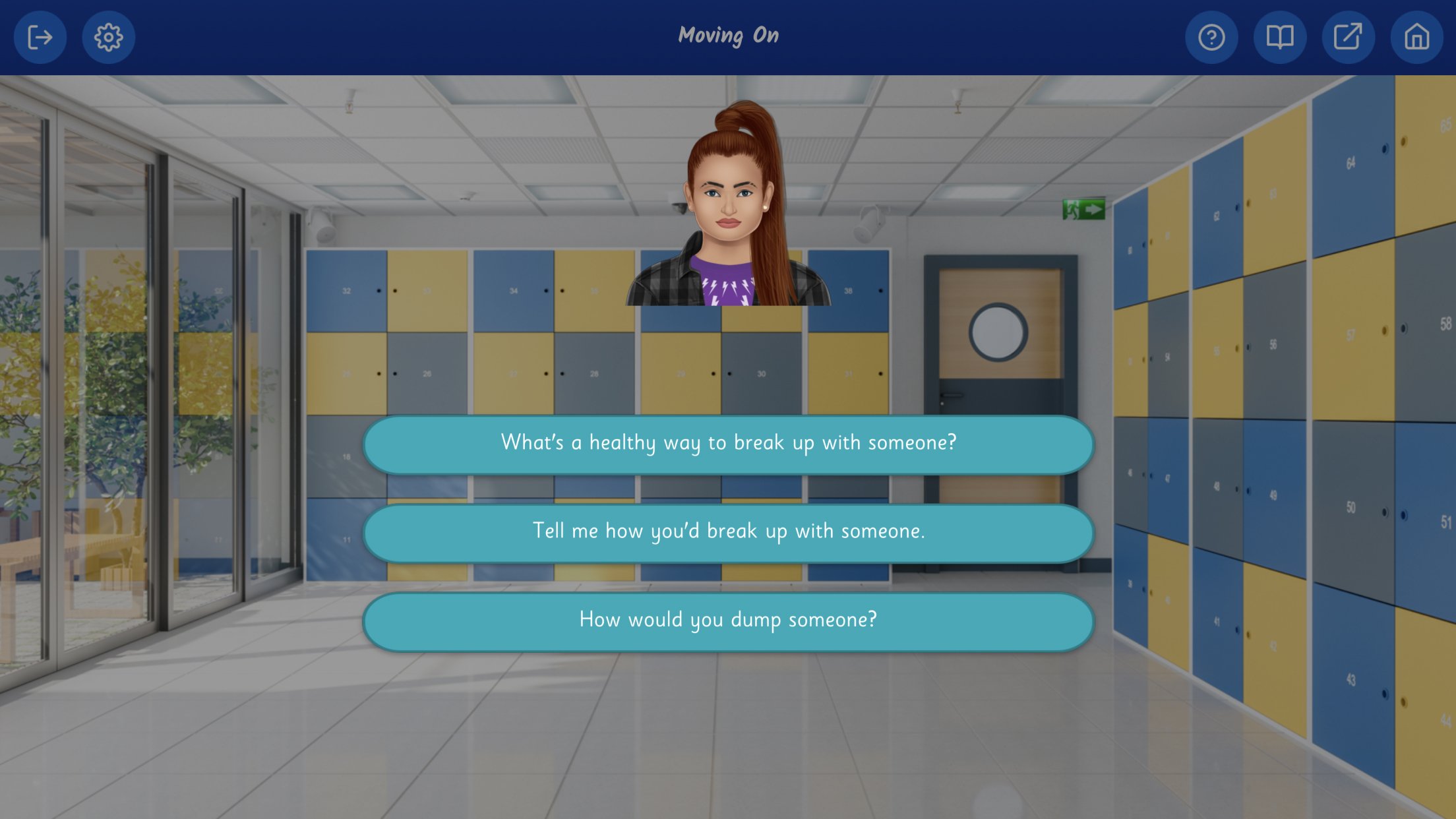
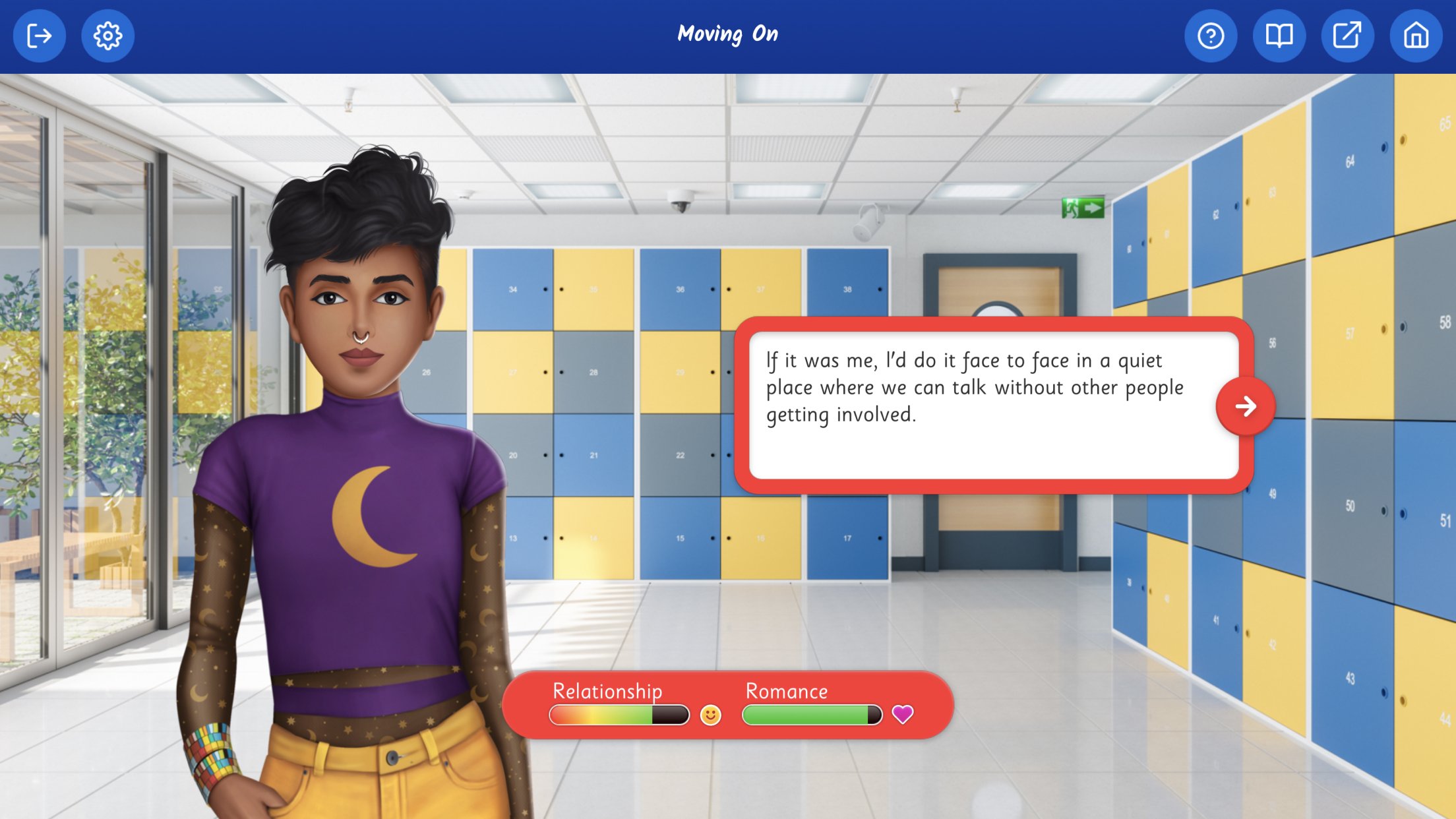
Level 1
Fresh Start
Themes: Communication, empathy and personal space
You have arrived at a new school and want to get to know your classmates. But, with so many different personalities in one place, can everyone get on and respect each other?
Learning Outcomes:
Players can identify healthy and unhealthy forms of communication
Players develop empathy, respect and understanding for others
Players can explore positive strategies for conflict resolution
Players develop their emotional literacy.

Level 2
The Photo
Themes: Online safety, peer pressure and consent
Embarrassing photos of someone you know are being sent around the school against their will. Your friend confides in you that they are also being pressured to send a photo by someone in your class: however, this photo is of their private parts. Can you help them work out what to do?
This resource has been created with reference to the NSPCC PANTS Rule. Consent is explored through discussing safe and unsafe online activity.
Learning Outcomes:
Players can identify healthy and unhealthy behaviour online
Players can understand personal boundaries and consent
Players can recognise and be resilient against pressuring and coercive behaviours
Players know their rights and where to seek support.
Level 3
Cupcakes
Themes – Communication, trust and secrets
It’s the school bake sale and you are starting to get to know your classmates really well. Some of your friends want to play a prank on another friend in your group: what should you do?
Learning Outcomes:
Players learn more detailed communication skills
Players can identify the difference between healthy and unhealthy secrets
Players develop their emotional literacy.

Level 4
Red Flags
Themes: Identifying unhealthy relationships, dealing with jealousy
As friendships get closer, navigating everyone’s feelings can get tricky and people can feel left out or get jealous. How do you deal with this?
Also, two of your classmates are now in a relationship! But something doesn’t seem quite right...Can you work out if their relationship is healthy and support your friends?
Learning Outcomes:
Players learn how to deal with negative emotions in a healthy way
Players learn how to be a supportive friend
Players can identify the early warning signs of an unhealthy relationship.
Players know where to access support for unhealthy relationships.
Level 5
Moving On
Themes: Navigating conflict, ending relationships, building self-esteem
Every relationship goes through difficulties and resolving conflict is hard.
Two of your friends are a couple, but one of them wants to end the relationship. Can you support them to do this in a healthy way and feel positive and confident about their next steps?
Learning Outcomes:
Players can identify healthy ways of ending a relationship
Players can recognise positive qualities about themselves
Players are equipped to handle their emotions in a healthy way
Players can respect others’ choices and boundaries.

Ages 12+ only
Mini-Levels
Following Level 3, players will be offered the option to play up to three mini-levels, focused on building their understanding of romantic or intimate relationships. Topics covered in these levels include:
Asking someone out on a date
Going on a date
Breaking up with someone
Learning outcomes:
Players build confidence and social skills.
Players understand the different signs if someone likes you romantically or platonically
Players learn how to ask someone out while respecting their boundaries
Players learn how to handle rejection.
Players are not required to play any of these levels if they do not want to. These levels are not available if using the game within a primary school setting.






















